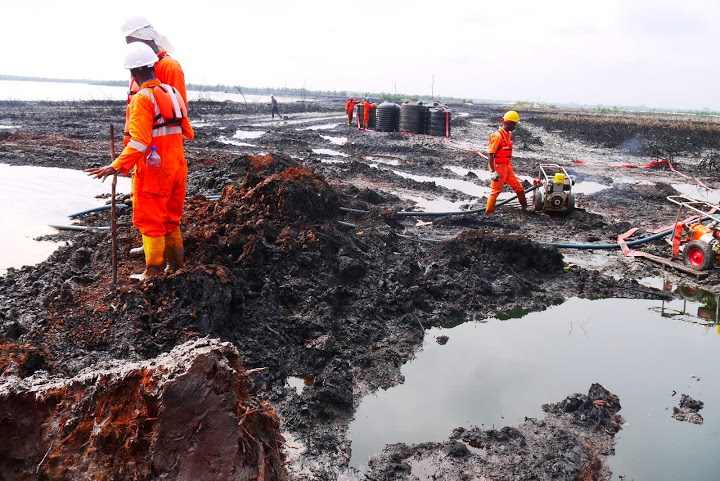- Oil Producing Communities Want Derivation Fund Raised to 50%
Oil producing communities in the Niger Delta region of the country have indicated their preference to have the new bill – the Petroleum Host and Impacted Communities Bill (PHICB) – contain a 50 per cent derivation payout to them as against the 13 per cent that exists at the moment.
The communities demanded that either that would be put in the PIHCB or 25 per cent of royalties paid to the government by oil-mining companies be made to come back to them in the bill.
They equally stated that they want the bill to be specific on how their environment would be managed by oil companies in such a way that they are protected from the hazards of oil exploration and production.
These communities made their positions known at a consultative meeting organised by the Emerald Energy Institute for Petroleum and Energy Economics, Policy and Strategic Studies at the University of Port Harcourt, as part of an ongoing legislative consultation to get the PHICB passed by the National Assembly.
A communique on the outcome of the meeting obtained in Abuja from the institute.
In it, the communities explained that the 13 per cent derivation allowance paid to states in the region; eight per cent littoral states fund; the Niger Delta Development Commission (NDDC) Act; Ministry of Niger Delta; and the Amnesty Programme of the government, had done very little to stem criminality in the region, hence the clamour for deeper communities’ involvement and some measure of control of revenues accruing from petroleum resources in their region.
They explained that the exclusion of the communities from control of oil revenues to them had often led to increased agitation; heightened insecurity in the Niger Delta Region; and incessant disruption of petroleum operations.
To this end, they noted their preference that the bill should contain, “50 per cent derivation pay-outs should be considered instead of the current 13per cent, or government should dedicate 25 per cent from the royalty payments for host communities.”
They also requested that the bill include, “Provision of opportunities for participation of the host communities in governance of the petroleum sector,” and asked to know how the bill will address the issue of environmental remediation, how communities impacted by already decommissioned oil and gas operations would be protected, as well as measures in it to evaluate the impact of the trust funds over time.
However, facilitators of the meeting stated in the communique, that the 50 per cent derivation request would require an amendment of the federal constitution.
They added that the proposed bill provided for participation in governance and management of the oil sector by host communities through a development and management fund.
In addition, they explained that environmental regulation and management were covered by the provisions of the bill for both decommissioning and abandonment of oil and gas operations, as well as environmental remediation.
With regards to monitoring and adequate supervision of the fund, they noted that the bill provided for oversight by a commission, which will monitor and assess the management and performance of the fund.
They explained PHICB was designed to facilitate community inclusiveness; fast-track infrastructure development in communities; end direct cash payments to community leaders; and enforce good governance, transparency and accountability in interventions in communities.
According to them, the PHICB provided for the incorporation of a Petroleum Host Communities Development Trusts (PHCDT) with the Corporate Affairs Commission (CAC), including the structure of, and funding for the trusts.
It also provided the governance guidelines for the PHCDT; sound financial management; and mechanism for dispute resolutions in the communities.
They noted that with the bill, it was expected that there would be a reduction in cost of oil and gas production for government and oil companies; recognition of host communities as stakeholders and joint protectors of petroleum facilities; active participation of host communities in resource allocation and development process; as well as conferment of direct measurable economic benefits from petroleum operations on host communities.

 Naira4 weeks ago
Naira4 weeks ago
 News4 weeks ago
News4 weeks ago
 Naira4 weeks ago
Naira4 weeks ago
 Travel3 weeks ago
Travel3 weeks ago
 Jobs4 weeks ago
Jobs4 weeks ago
 Naira3 weeks ago
Naira3 weeks ago
 Naira3 weeks ago
Naira3 weeks ago
 Investment4 weeks ago
Investment4 weeks ago






























